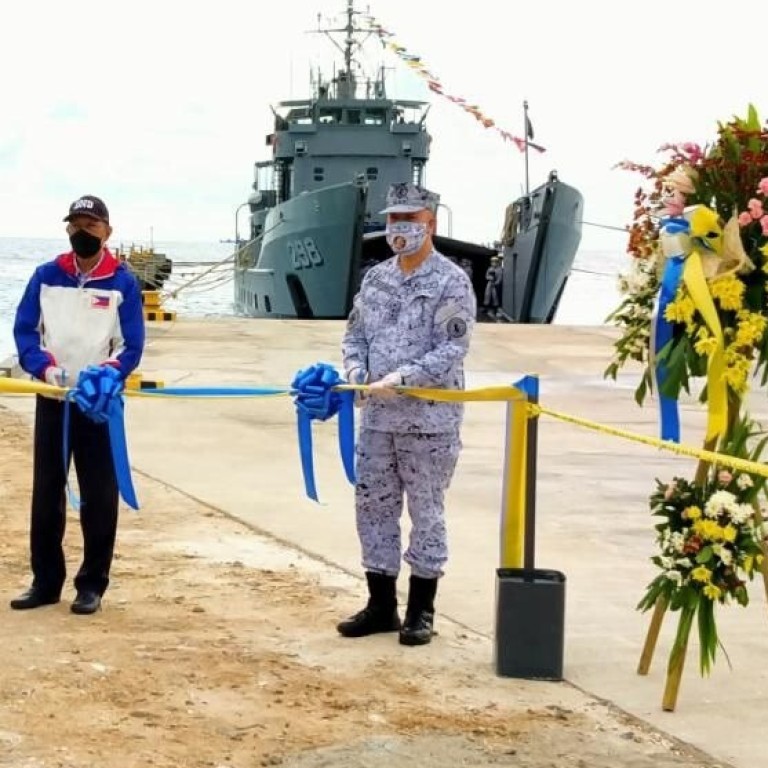
Happy anniversary China: Philippines plans US$26 million of military infrastructure on disputed South China Sea island Pag-Asa
- While Manila officials were marking 45 years of ties with Beijing, the Philippine defence secretary was unveiling a plan likely to strain relations
- US$26 million worth of military infrastructure is to be built on Pag-Asa island in the disputed South China Sea, Delfin Lorenzana announced
In a move widely expected to raise Beijing’s hackles, Defence Secretary Delfin Lorenzana visited the Philippine-occupied island of Pag-Asa (or Thitu) on Tuesday amid much fanfare, announcing plans for US$26 million of military infrastructure, inaugurating a beaching ramp for the navy worth 268 million pesos (US$5 million) and talking up the opening of a fisherman’s shelter to mark his country’s 122nd Independence Day anniversary on Friday.
Despite the military applications of the infrastructure, he claimed the initiatives were aimed at making the island more liveable without militarising it and said he was confident the new construction would not lead to conflict.
The island has long been occupied by Filipino forces and fishermen and the recent massing of Chinese fishing vessels and coastguard ships in nearby waters has raised speculation it could soon become a flashpoint between the two countries.
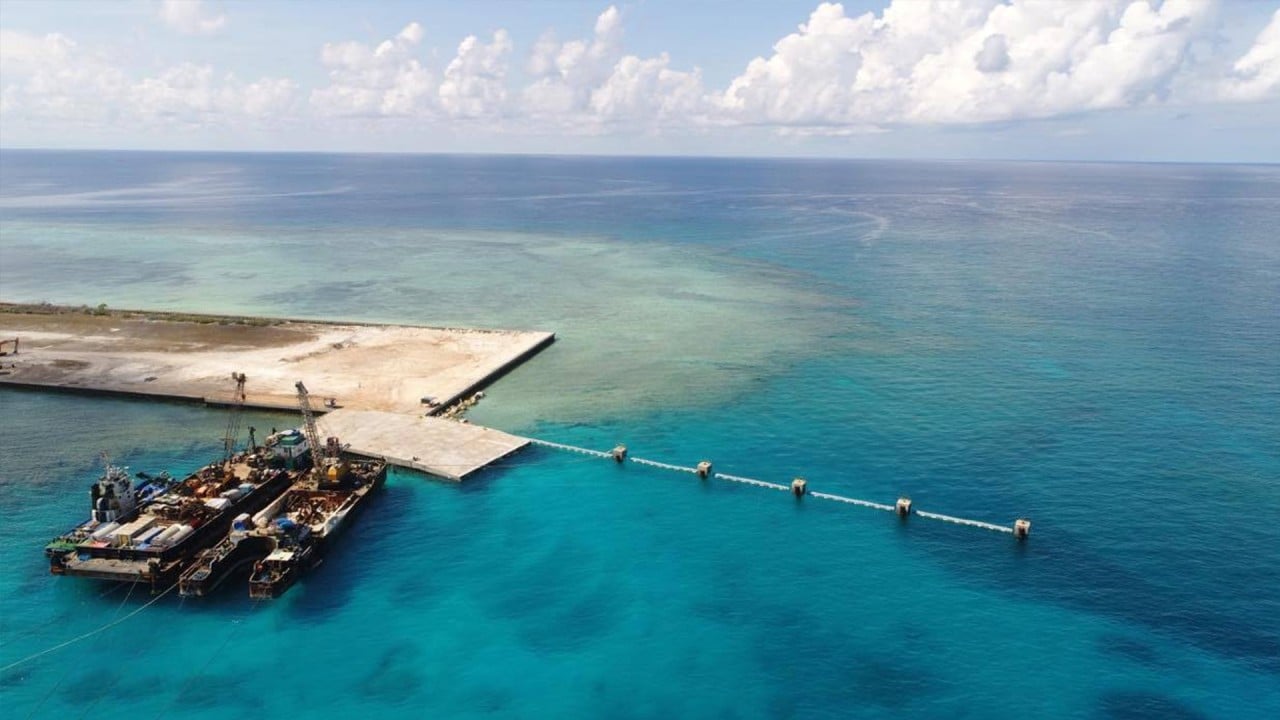
01:17
Philippine officials unveil beaching ramp on disputed South China Sea island
However, Lorenzana insisted that “the Chinese have said they will not attack us”.
“So we are safe here [and] the purpose is to develop a safe, viable community,” he said, adding that “we will not militarise this, like [with] cannons, missiles”.
He told reporters accompanying him that while the island was outside the country’s exclusive economic zone, the Philippines should “manage our claims” in the region.
“We have nine islands here and this is the biggest,” he said.
The new beaching ramp, Lorenzana said, would enable the navy to bring in supplies even during typhoon season. “Before this ramp, you had to anchor about 100 metres away and transfer the goods to a small boat. It was very tedious and expensive and we could only do that during calm weather,” he said.
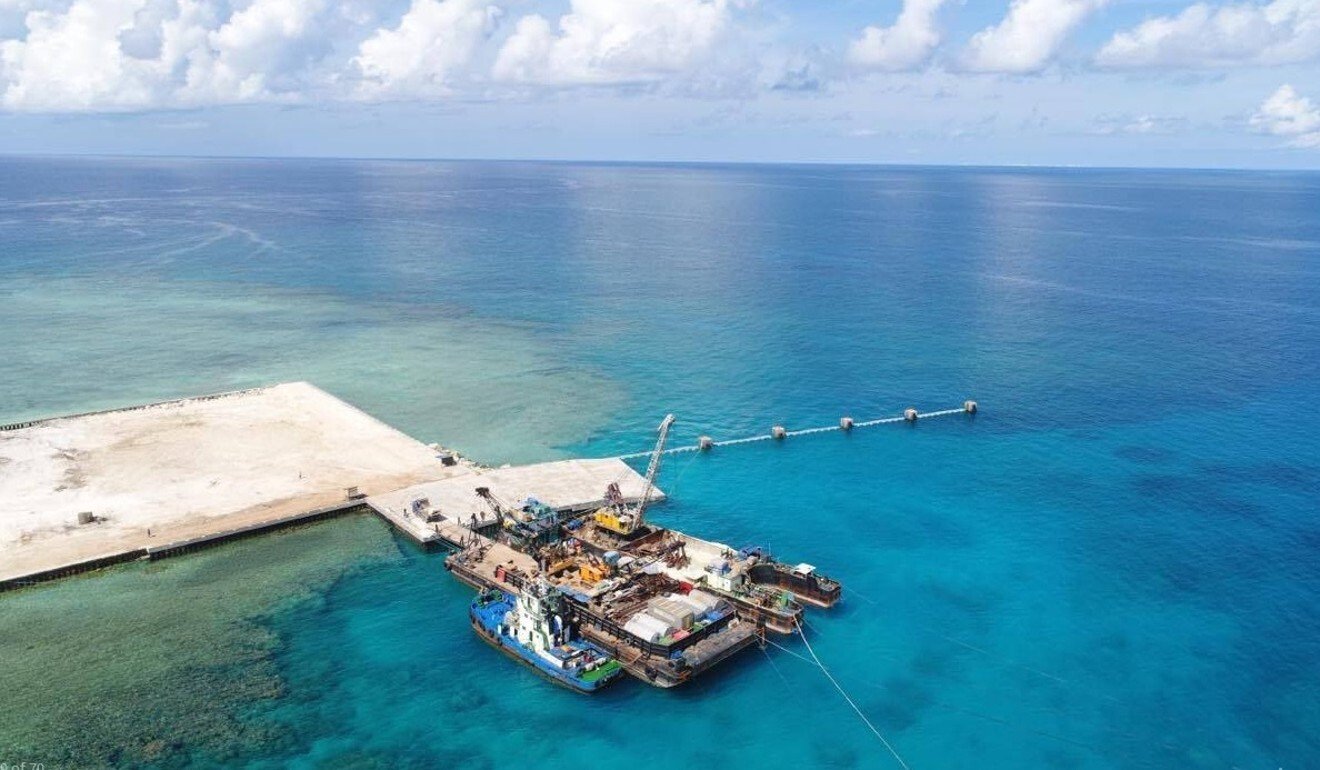
LIP SERVICE?
“We hope that this renaissance will lead to better relations, resolve all the disputes that we have between our two countries, increase economic ties and increase prosperity for both the Philippines and China,” Roque said.
Asean stays on the sidelines as South China Sea tensions mount
Foreign Secretary Teodoro Locsin, Jnr was equally effusive: “The feeling of warm friendship has not cooled, let alone been lost, not even in our differences. But under [Duterte], that old friendship has flowered into a new partnership for mutual profit and progress.”
“The East is red with the warmth of Filipino-Chinese friendship,” he added.
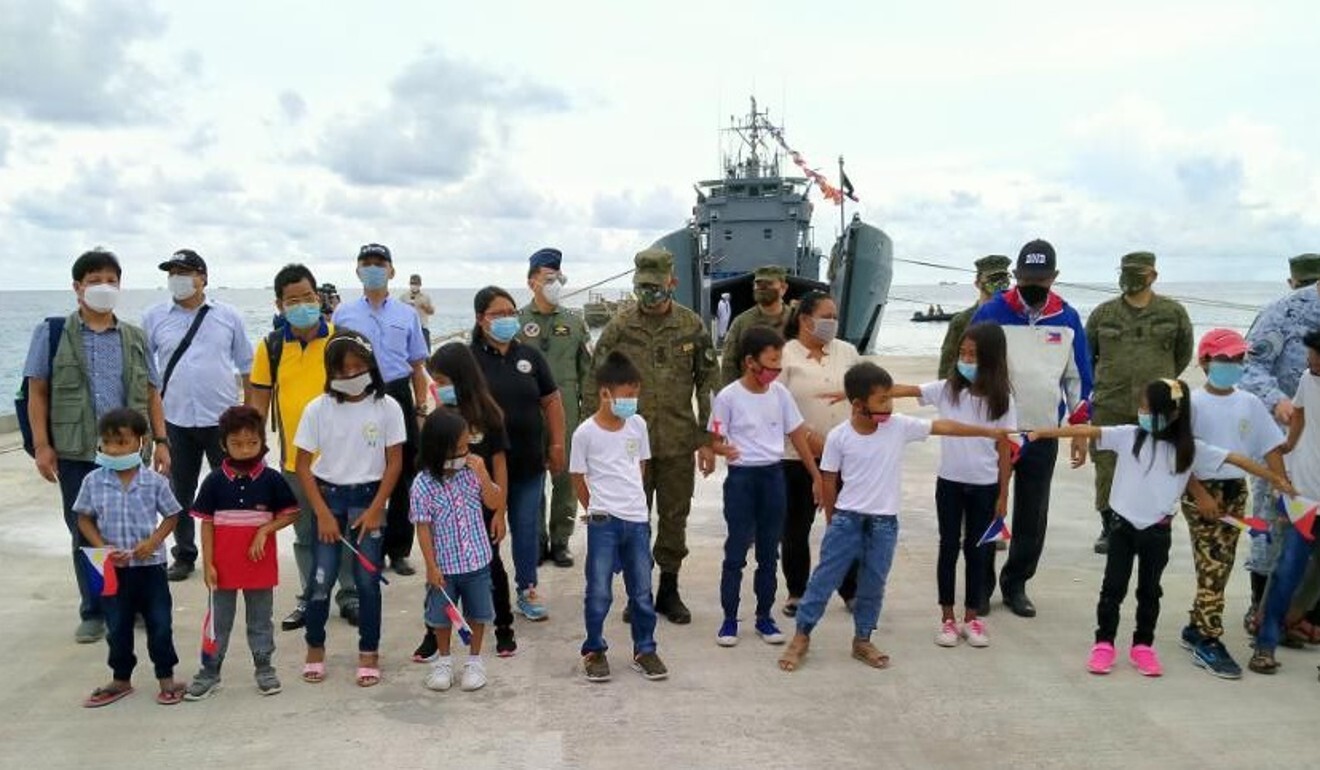
For his part, China’s envoy to Manila Huang Xilian said discussions on a proposed Code of Conduct to govern the South China Sea were continuing “smoothly and effectively”.
He said that “through joining hands to fight against Covid-19, the foundation of China-Philippines relations has been further cemented, people-to-people ties strengthened, and the sense of building a community of shared future deepened.”
PUBLIC OPINION
While Filipinos often take to the streets of Manila to protest whenever there is an incident in the South China Sea, diplomatic anniversaries tend to go unnoticed.
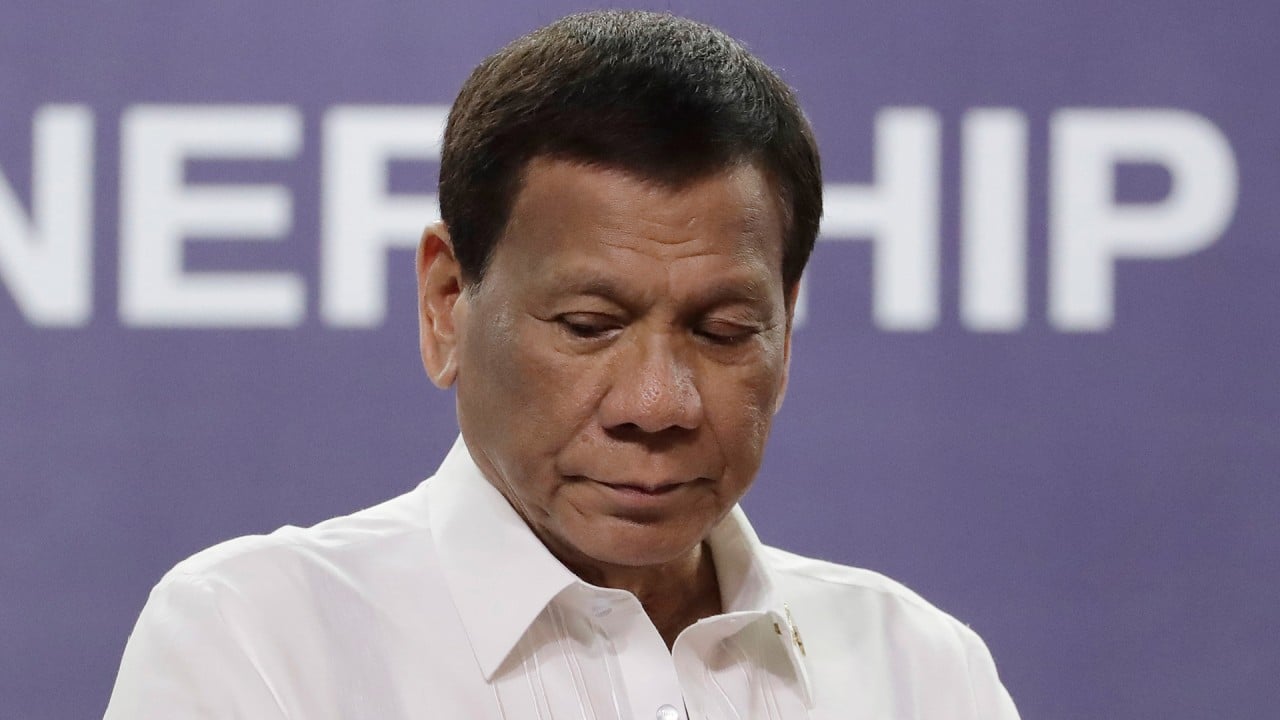
02:19
Philippine President Duterte admits being at a loss getting Beijing to honour South China Sea ruling
“I don’t think anybody is in a mood to celebrate anything these days,” Batongbacal said.
Even so, the anniversary did not entirely escape the public’s notice.
Explained: the South China Sea dispute
A post on the Facebook page of the Philippine Department of Foreign Affairs, which said it looked forward to a “continuing friendship and mutually beneficial relations” with China and “peace and harmony in the Asia-Pacific”, attracted 3,700 mainly negative comments alluding to territorial disputes in the South China Sea and the 1989 Tiananmen Square crackdown by Beijing on pro-democracy student protesters.
Security analyst Chester Cabalza said the diplomatic anniversary was “nothing to celebrate, except we are reminded of China’s maritime expansionist aggression and global ambition to lead the world”.

